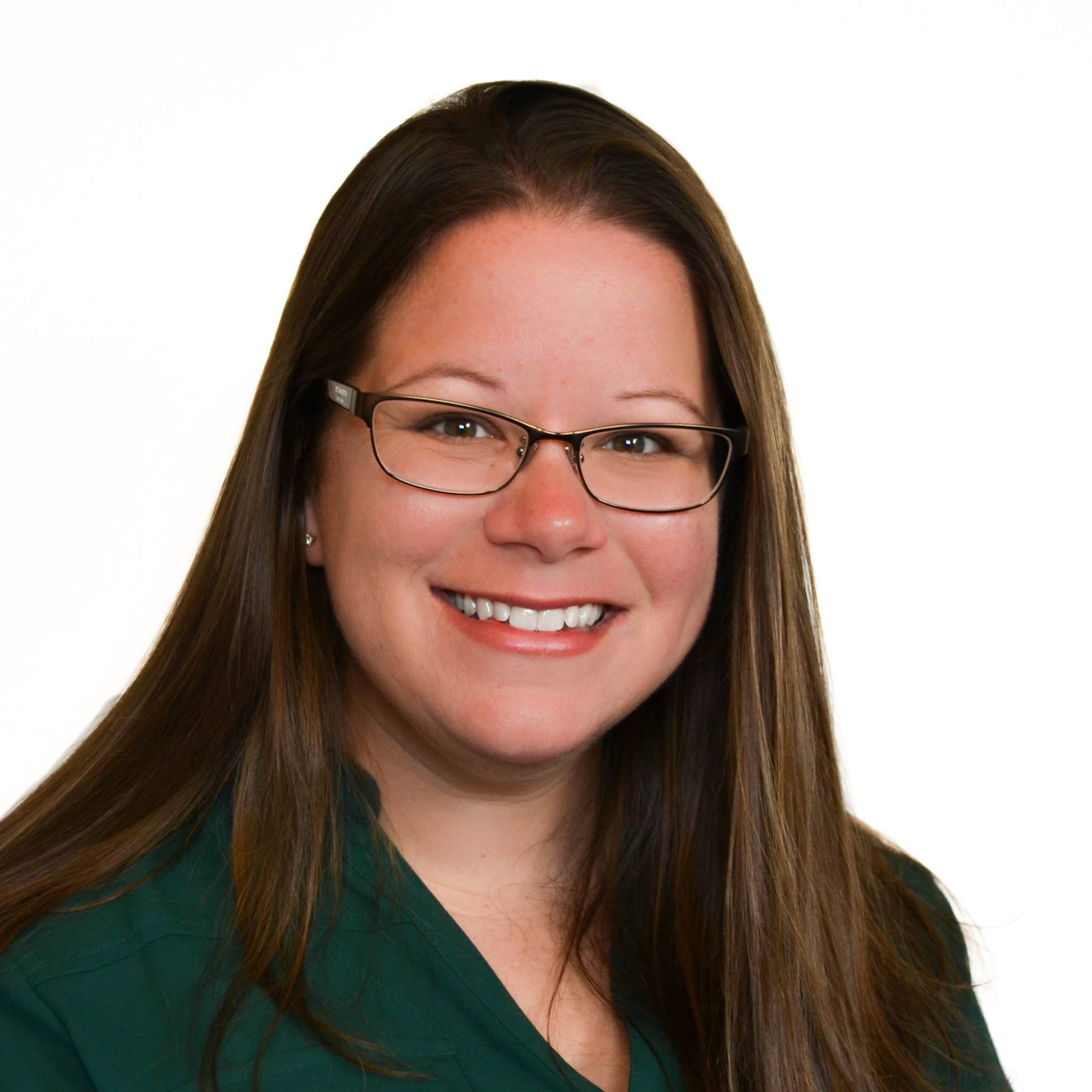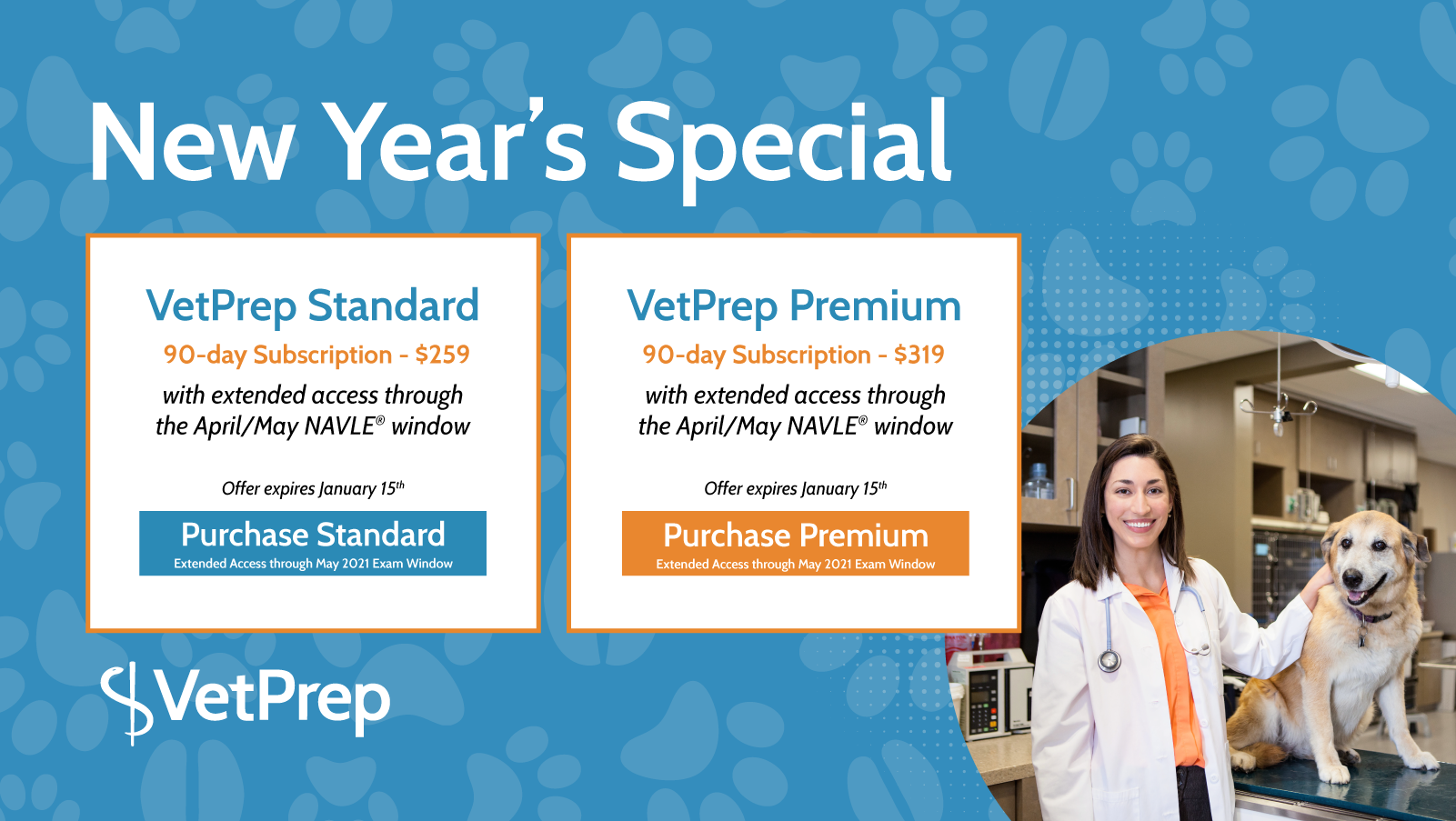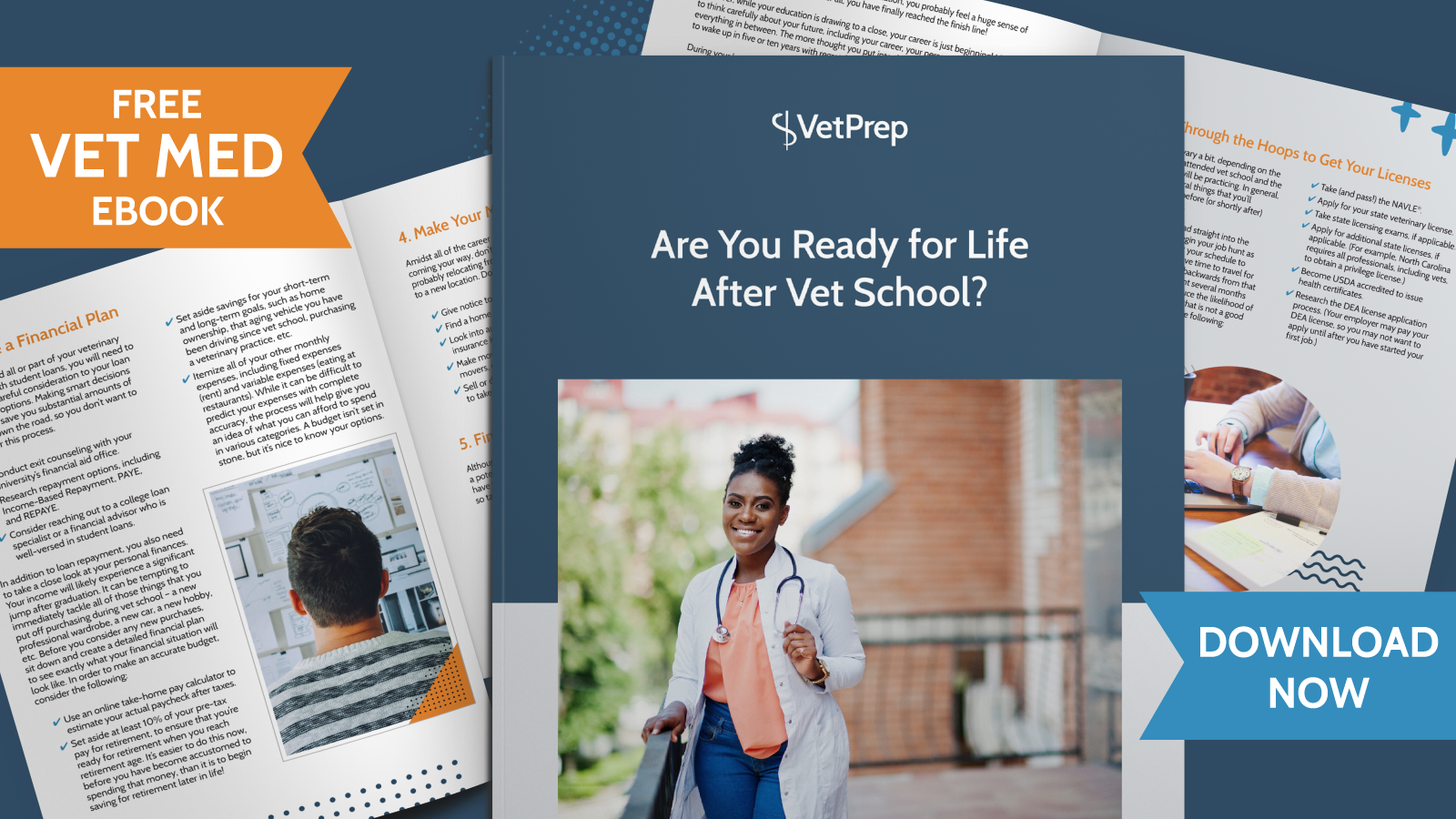
 There are two types of people: the obsessive planners and the go-with-the-flow types. If you’re in vet school, I’m going to assume that you’re at least a little bit of a planner… but sometimes it’s hard to know exactly what to plan for, or how to create the best possible plan.
There are two types of people: the obsessive planners and the go-with-the-flow types. If you’re in vet school, I’m going to assume that you’re at least a little bit of a planner… but sometimes it’s hard to know exactly what to plan for, or how to create the best possible plan.
As you approach vet school graduation, you will be making a ton of decisions and doing a lot of planning. From choosing your first job to finding an apartment, there will be a lot of change and a lot of decisions to be made. In the midst of all of that change and upheaval, it’s easy to put your finances on autopilot. You will likely have more income as a new grad than you do as a vet student, so you may be tempted to assume that everything will “just work out.”
While things probably will work out and detailed financial plans can be hard to make in advance, it’s a good idea to begin thinking about your finances before graduation. Making thoughtful plans will help you juggle your everyday expenses, student loan payments, and saving for future goals with as little financial stress as possible.

Begin With Some Daydreaming
You can’t create a plan if you don’t know where you’re heading! Before you start thinking about the nuts and bolts of your finances, take some time to think about your goals. Some of these goals may be practical and others may feel more like daydreams, but it’s important to think about your priorities so that you can try to align your financial planning towards those goals and dreams. Do you want to pay off your student loans as soon as possible? Do you want to travel internationally? Do you want to own your own home or farm? Now’s the time to think about those dreams.
I sometimes listen to a personal finance podcast called Afford Anything. The host’s intro line is “you can afford anything, but not everything.” While that may be a slight exaggeration, it really is true for many of us. If you want to travel the world on a new grad salary, you can likely do that… but it may mean focusing on low-budget travel options (such as hostels), living with roommates, eating a lot of ramen noodles. Want to pay off your loans in the next 10 years? It won’t be easy, but if you minimize your cost of living and seek out opportunities to maximize your income, you can probably make it happen. What’s important is to think consciously about your priorities, as well as what you’re willing to sacrifice in order to meet those priorities.
Research Your Student Loan Options
If you paid for some or all of your education with loans, it’s important to look into your repayment options before graduation. Your university’s financial aid office will likely require some degree of exit counseling, but further research can help you determine what makes the most sense for your situation.
There are a number of different loan repayment options available for vet students. You may elect to repay your loans using a standard repayment plan, public service loan forgiveness, or an income-driven repayment plan such as PAYE or REPAYE. The best way to evaluate your options is to speak with a student loan expert or a financial advisor who is well-versed in student loans. These individuals can help you evaluate your options, determine the best financial plan for your situation, and help you determine what you can expect to pay monthly.
Make a Preliminary Budget
While your budget will almost certainly need some adjusting once you’re in your new job and your new home (assuming you will relocate after vet school), a preliminary budget will help you begin thinking through what you can afford to spend on housing, what income you need to earn, and other big-picture items that may play a role in your decision-making. There are a number of ways to create a budget, such as computer spreadsheets, online calculators, and plain old pen-and-paper. Regardless of how you choose to create your budget, it’s important not to skip this step!
If you have already accepted a job and know your salary, you can use an online take-home pay calculator to estimate your actual monthly take-home pay. If you haven’t yet begun your job search, input your expected salary for now and make changes later, once you have a firm offer.
Next, enter all of your expected expenses. In addition to recurring monthly bills, such as rent and utilities, you should also include anticipated spending for groceries, meals out, gas for your car, etc. Finally, consider a “sinking fund” to which you can contribute monthly for intermittent expenses (car registration, holiday gifts, travel, etc.), as well as savings for any other financial goals you may have (homeownership, a newer car to replace that beater you’ve been driving since your undergrad days, etc.).
If you struggle to create a balanced budget with your anticipated income and expenses, you have two options: increase your income or decrease your spending. Perhaps your employer will allow you to work one or two shifts per month at an emergency clinic (check your contract’s non-compete agreement!) or maybe you can take on a roommate to reduce your rent. Try to look objectively at every income and expense item on your budget, looking for ways to increase income or decrease expenses.
Start Saving for Retirement (Yes, Now!)
While I learned a ton of info in vet school, probably the most important thing I learned was this: save at least 10% of your income for retirement, starting the year you graduate.
At the time, that seemed like a ridiculous idea. The last thing on my mind at 27 years old was retirement! However, I’m a rule-follower and a bit of an overachiever, so I made a point of saving from the very start. Honestly, it didn’t hurt as badly as I expected. My first job out of vet school only paid $45k per year, so 10% of that didn’t amount to very much. Still, I dutifully put that money away and now, sixteen years later, I have no doubt that I’ll be able to retire when I’m ready to do so.
If you can’t afford to save 10% right from the beginning, get as close to that number as you can and increase the percentage as your salary increases. I promise that your future self will thank you! Thanks to compounding interest, even a small investment now will be worth much, much more than a larger investment later in your career.

Finally, Stay Flexible
No matter how carefully you plan for the future, our plans and life circumstances change. Think of your financial plan as a roadmap to help guide you in the right direction, not a strict set of guidelines that must be followed at all costs. Revisit your budget on a regular basis, making sure that it’s realistic and that your spending and savings still align with your priorities.
Remember that, while finances can be stressful, they can also be a valuable tool in helping you reach your future goals. As long as your spending and savings are in line with your goals and priorities (and you aren’t getting into dangerous amounts of debt or otherwise failing to meet your obligations), you’re on the right track.



